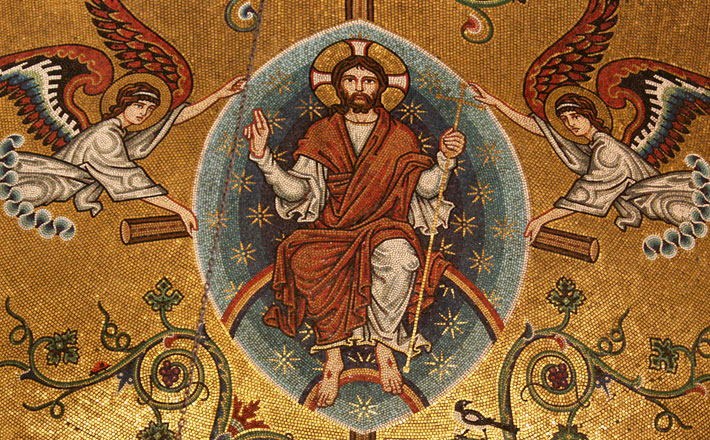Commentary on 1 John 4:7-21
It all begins with God’s love. In case we ever forget this basic, essential fact of our faith, 1 John makes it crystal clear.
God is the source and the definition of love. God is love. God loves as the sun shines: love expresses who God is.
1 John emphasizes that God’s love is not some abstract concept. It is passion expressed in action. God made love real and present by sending Jesus to live among us and to die for us. God continues to show us love through Jesus’ life-giving presence among us. If ever we should question whether God truly does love us, the gift and witness of the Holy Spirit confirmed it once more: we are God’s beloved. God’s love is a truth more basic and reliable than the ground we walk on and the air we breathe.
God’s love does not depend on our initiative or on our worthiness. We don’t have to reach out to God or even believe in God in order to be loved. We don’t have to clean up our act before God can love us. We don’t have to measure up to some standard in order to be lovable. No, God showers love on us whether we deserve it or not. And honestly, who could ever deserve such amazing, immeasurable love?
1 John insists that the more fully and completely we know God, the more the immense reality of God’s love dawns on us. When we open ourselves to the warmth and light of God’s presence, we find that even our deepest, darkest secrets and the ugliest parts of ourselves are not beyond God’s reach. Nothing in us is so broken or so filthy that God is unwilling or unable to touch it. God embraces us as we are, loves us as we are, and works in us to make us clean and whole and new. Upheld, surrounded, enfolded by such love, who could be afraid?
Such life-giving love is too wonderful to keep to ourselves. To know God’s love is to overflow with God’s love. How can we possibly love God while we hate God’s beloved? Seeing ourselves as God’s beloved means seeing our sisters and brothers as God’s loved ones too. If we have come to know God’s love, we have seen for ourselves that it is unearned, undeserved, utterly free. Although God’s love is without conditions, it is not without consequences: God commands us to love one another as God has loved us.
In case we haven’t understood the seriousness of this command, 1 John expresses it in a way that leaves no room for doubt: “just as God is, so are we in this world” (1 John 4:17 b). In context, it’s clear that 1 John is not saying that Christians are omnipotent or omniscient or morally pure. No, 1 John is saying that because God lives in us, we embody God’s love for the world. We are not gods, but we are God’s. God’s love is incarnate in us.
The author of 1 John calls us to love one another, that is, to love our sisters and brothers. The first-century Christians for whom 1 John was originally written were in conflict about the boundaries of their community, about theology, and about false teaching. In this context 1 John focuses on love for others who belong to the community of faith. Does this mean that we are called only to love those who belong to our group and believe as we do?
The whole foundation of 1 John’s argument suggests otherwise. If we love others as God has loved us, there can be no boundaries. God’s love, made visible and present in Jesus, is the source for the love we share with others. Jesus ignored the limits that religious communities imposed. He ate and talked with people whom the religious leaders had rejected as heretics, as sinful, as filthy and despicable. He touched people who were considered untouchable and welcomed people whom everyone else had kicked out. His harshest words were reserved not for the impure, but for unloving, self-righteous people who saw some of God’s children as beneath their attention and certainly as unworthy of their love. If Jesus shows us what God’s love is like, then there can be no doubt how far our love for others must extend: to every single human being.
Such love can never originate with us. It is not our own, weak, limited love that we share with God’s beloved. No, we are called to open ourselves to God’s love so that God can love others through us. When we love one another, we re-present God to the world. By allowing the love that God has showered on us to overflow onto our sisters and brothers, we make divine love real and visible in the ordinary lives of ordinary people. God invites us to let Jesus live in us, so that through us Jesus can continue to welcome outcasts and touch untouchables and heal the broken. When God’s unimaginable, limitless love comes alive in us, we become the real presence of God in the world. All we can possibly say to such love is thank you, and may it indeed be so.


May 3, 2015